Stormont: Karen Bradley 'fiddling while Rome burns'
- Published
- comments
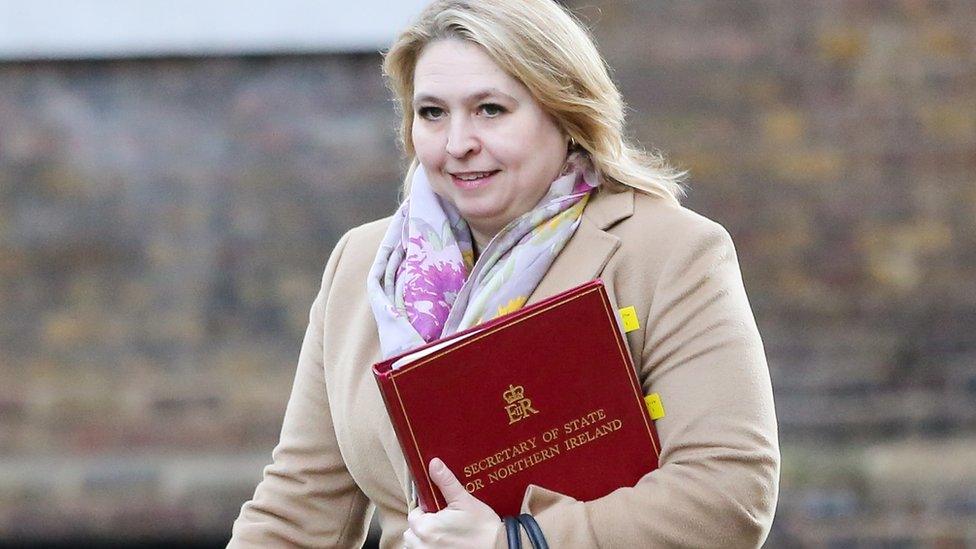
Karen Bradley has said getting Stormont restored remains her top priority
Karen Bradley has been accused of "fiddling while Rome burns" for seeking further public appointment powers in the absence of a Stormont executive.
The secretary of state has put regulations before Parliament that would allow her to make appointments - including NI's Attorney General.
John Larkin's contract is due to expire on 23 May 2019.
The NIO said restoring devolution remains an "absolute priority" for Mrs Bradley.
But Felicity Huston, Northern Ireland's former Commissioner for Public Appointments, said Mrs Bradley had a "moral and constitutional duty to start running the country".
"It will be seen as a bit of fiddling while Rome burns," she told BBC News NI.
'Not hard government'
"A few decisions about a few public appointments is not what people need: they need serious stuff or an assembly back.
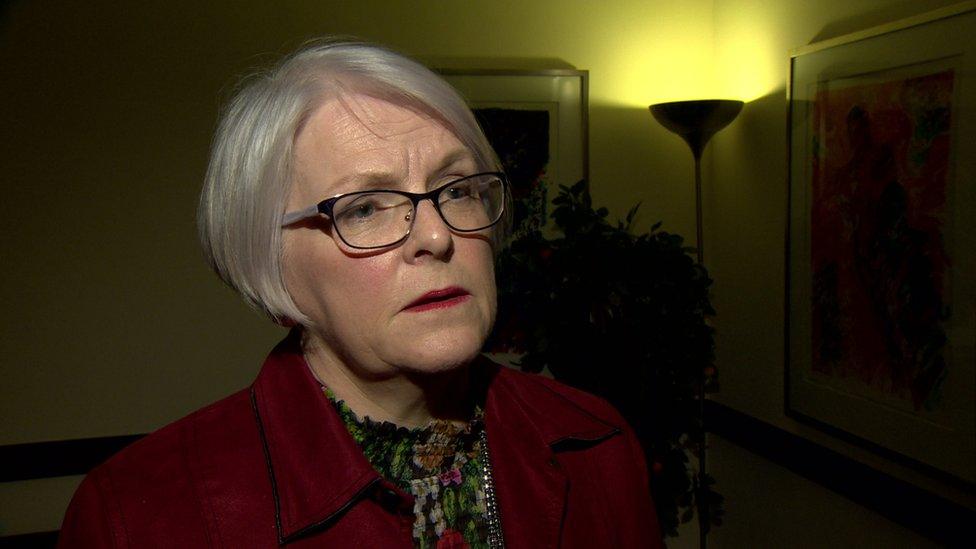
Felicity Huston oversaw public appointments made by Stormont ministers for a number of years
"People will not understand why she's doing these things, public appointments are not complex. This is not hard government she has taken on."
Under devolution, the power to appoint the Attorney General is held by the first and deputy first ministers.
But the Stormont executive collapsed two years ago, due to a row over a flawed renewable energy scheme.
The political deadlock means many decisions have been left in departmental in-trays, until such times as devolution is restored.
Last year, the secretary of state passed a law through the Commons that gave UK government ministers the power to make some public appointments to the NI Policing Board, the Probation Board and the Police Ombudsman.

Stormont has been in deep freeze since the political institutions collapsed in 2017
More appointments regulations have been placed before Parliament, external that are likely to be approved this month.
They will allow Mrs Bradley to re-appoint the Attorney General position, the Children and Young People's Commissioner, as well as members of the Victims and Survivors Commission and the Livestock and Meat Commission.
While the secretary of state has moved to take some appointment powers, there are a wide range of issues that she has said remain matters for devolved government.
They include implementing significant health reform through the Bengoa report, and a compensation scheme for victims of Historical Institutional Abuse, external (HIA).
In November, Stormont civil servants completed draft legislation for such a fund, but Mrs Bradley has given no indication that Westminster will implement it.
'No alternative'
Labour's shadow Northern Ireland minister Stephen Pound said he felt the secretary of state had "no alternative", but to make some appointments in the absence of an executive.
"To her credit I don't think she wants to do this; the problem is you cannot simply stand back and let nothing happen," he said.
But he criticised the NIO for not moving to deal with the HIA inquiry's recommendations, despite cross-party support for it.
"I'd have thought the (Sir Anthony) Hart report could be done, and we in the Labour party are pressing her urgently on this," he added.

Who is John Larkin?
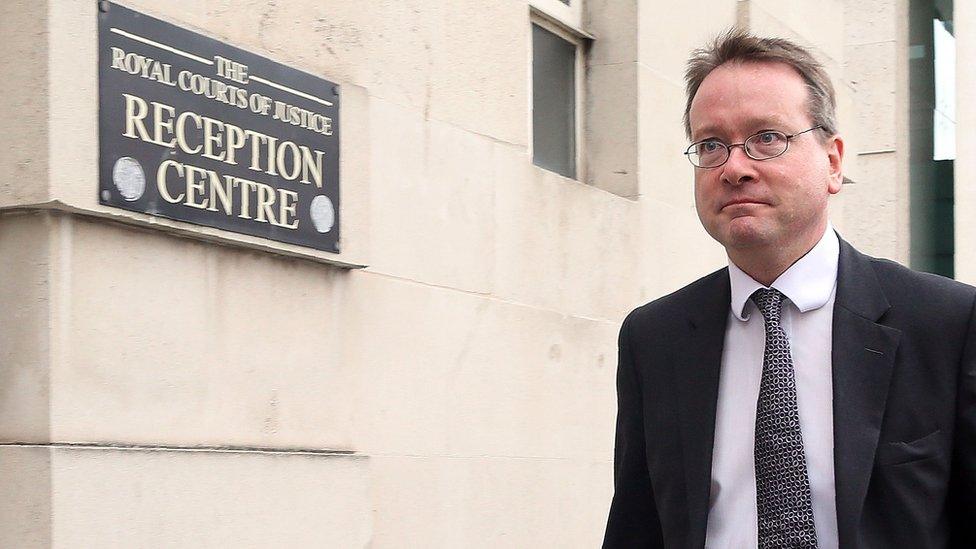
Mr Larkin was first appointed as chief legal adviser to the Stormont Executive in May 2010, with the intention of serving a four-year term.
He was reappointed in 2014 and again in 2015.
A controversial figure since his tenure began, he at one stage proposed a bar on any further Troubles prosecutions.
His views on abortion and same-sex marriage, as well as interventions through the years on court cases about these issues, have also drawn criticism.
A spokesperson for the Attorney General's office said while Mr Larkin was aware that the regulations had been laid in Parliament, he has "no role in making or approving them" and all questions should be addressed to the NIO.

Last month, former Ulster Unionist leader Lord Empey criticised Mrs Bradley in the House of Lords, external and said she needs to "get her skates on" and resolve the political limbo.
Several talks processes at Stormont collapsed, and there is no sign of progress due to Brexit dominating much of the political agenda.
Lord Empey told BBC News NI that Stormont is almost "like a museum" nowadays, and the lack of a functioning government was very sad.

Parliament Buildings has been much quieter since devolution collapsed in January 2017, as assembly business has been unable to take place
"Unless there's a process and unless the parties here believe Karen Bradley's going to act with or without them, there's no incentive to agree," he said.
"The way this is being handled has been terribly disappointing and it's letting the people of Northern Ireland down very badly."
In a statement, the NIO said that in the absence of devolved government, the UK Government has a responsibility "to ensure good governance and public confidence is maintained" in Northern Ireland.
"Under legislation passed in November, the secretary of state gave a commitment to make critical appointments that may arise in the absence of an executive," it added.
- Published9 January 2019

- Published7 August 2019
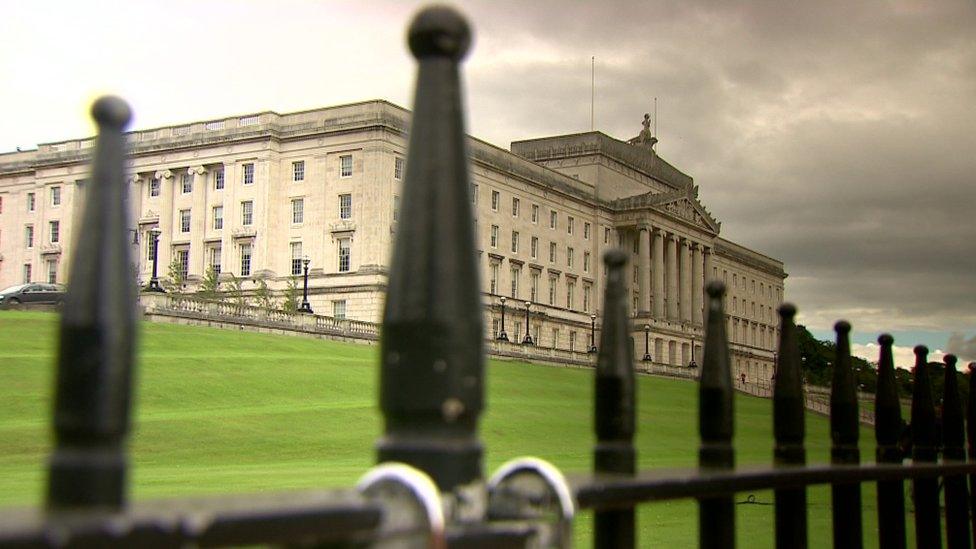
- Published24 August 2018
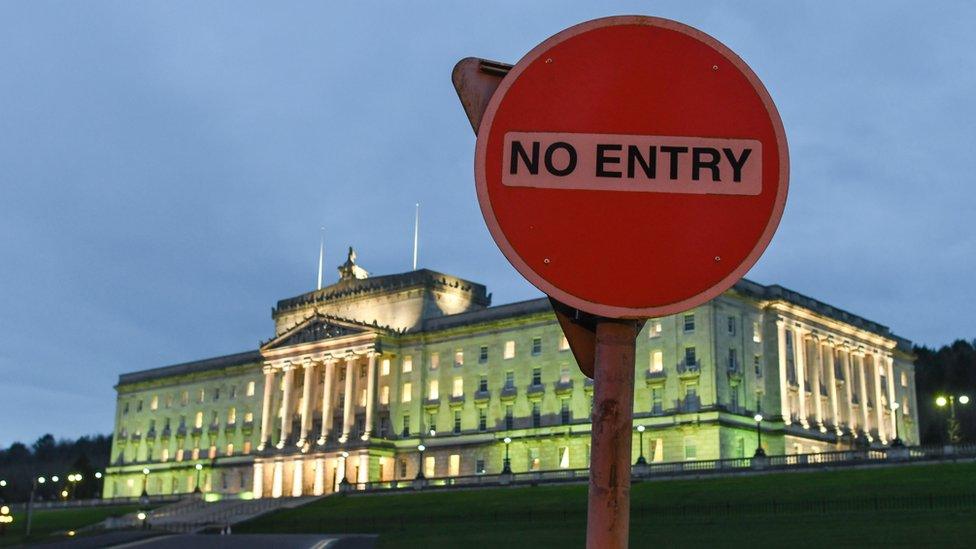
- Published9 August 2018
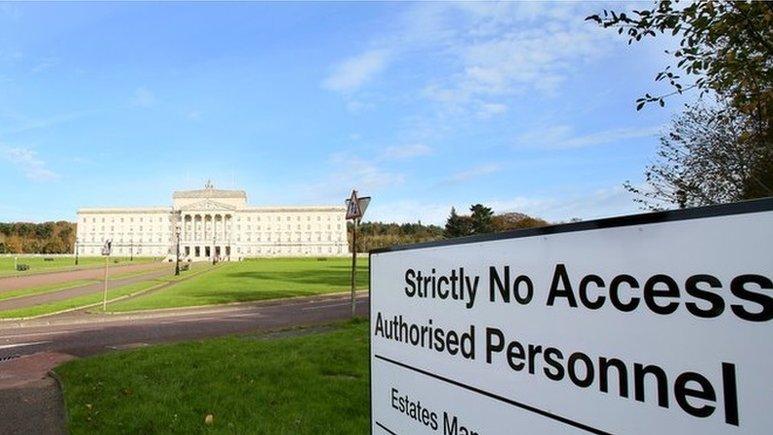
- Published10 January 2017
